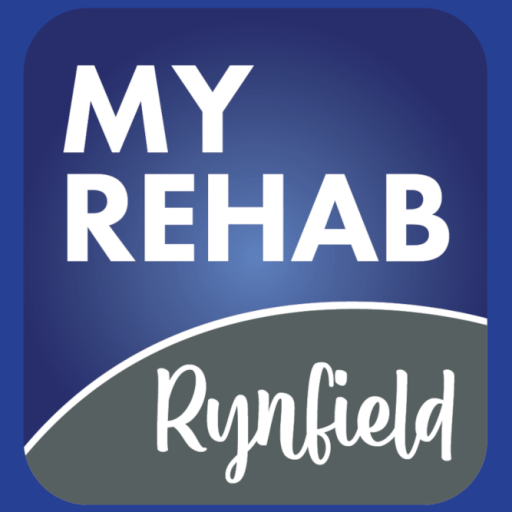
Why Aftercare Resources Are Vital for Sobriety?
Why Aftercare Resources Are Vital for Sobriety?
Aftercare resources are vital for our sobriety and help us tackle the challenges that come after recovery. They provide ongoing support, guidance, and accountability, which are essential for long-term success. Through support groups, therapy sessions, and sober living environments, we can reinforce our commitment and develop coping strategies for stress. These resources foster a sense of community, making us feel less isolated. By building connections with others, we share struggles and victories, creating a safety net for our journey. To explore more about how these resources can bolster our success, we can uncover additional insights on this topic.
Understanding Aftercare Resources
Aftercare resources play a crucial role in helping us maintain our sobriety and navigate the challenges that follow recovery. These resources provide ongoing support, guidance, and accountability, which are essential for our long-term success. We often face temptations and triggers that can threaten our progress, and having a solid aftercare plan can help us stay on course.
Aftercare resources include support groups, therapy sessions, and sober living environments, all tailored to our unique needs. By actively participating in these programs, we reinforce our commitment to sobriety and learn coping strategies to handle life’s stresses. We also benefit from connecting with others who share similar experiences, fostering a sense of community and understanding.
Moreover, aftercare resources often provide educational materials and workshops that equip us with the tools we need to navigate our new lifestyles. They remind us that recovery is an ongoing journey, not a destination. By utilizing these resources, we can build a strong foundation for our future, ensuring we remain focused on our goals and resilient in the face of challenges. Ultimately, embracing aftercare resources empowers us to thrive in our sobriety and live fulfilling lives.
Benefits of Ongoing Support
Ongoing support is vital for us as we navigate the challenges of maintaining sobriety, providing a network of encouragement that helps us stay grounded in our recovery journey. This support comes from various sources—friends, family, support groups, and counselors—each playing a crucial role in our lives.
Having these connections gives us a sense of belonging and accountability. When we face tough days, knowing we’re not alone makes a significant difference. We can share our struggles, celebrate our victories, and gain perspectives from others who’ve walked similar paths. This shared experience fosters understanding and reduces feelings of isolation.
Moreover, ongoing support helps us develop essential coping strategies. We learn to address triggers and manage cravings more effectively, equipping us with tools we can rely on in challenging moments. Regular check-ins with our support network remind us of our goals and reinforce our commitment to sobriety.
Ultimately, ongoing support creates a safety net that allows us to be open about our feelings and experiences. By engaging with our support system, we strengthen our resolve and enhance our chances of long-term recovery. Together, we’re more resilient and better prepared to face whatever comes our way.
Types of Aftercare Programs
There are various types of aftercare programs available that cater to different needs and preferences, helping us maintain our sobriety effectively. One common option is outpatient therapy, where we can engage in regular counseling sessions while continuing our daily lives. This flexibility allows us to integrate coping strategies into our routines.
Another popular choice is support groups, like Alcoholics Anonymous or SMART Recovery. These groups offer a community of individuals who understand our struggles, providing a safe space to share experiences and encouragement. We can also explore sober living houses, which provide a structured environment for those transitioning back to independent living. Here, we can focus on our recovery without the distractions of old habits.
Lastly, some may find benefit in holistic approaches, such as yoga or meditation programs, which enhance our emotional and physical well-being. Regardless of the type we choose, it’s crucial that these aftercare resources align with our personal goals and recovery journey. By actively participating in aftercare programs, we increase our chances of long-term sobriety and a healthier, more fulfilling life.
Building a Support Network
Building a strong support network is essential for our recovery, as it connects us with people who understand our journey and provide encouragement during tough times. When we surround ourselves with others who share similar experiences, we create a sense of belonging that can significantly enhance our sobriety.
To build this network effectively, we can focus on a few key strategies:
- Join Support Groups: Participating in local or online support groups allows us to share our feelings and challenges with others who truly understand what we’re going through.
- Reach Out to Friends and Family: We should communicate our needs to loved ones, letting them know how they can support us. Their presence can be a comforting reminder that we’re not alone.
- Connect with Sober Peers: Finding friends who are also on the path to sobriety helps us stay accountable and motivated. Together, we can celebrate our successes and face our struggles.
Coping With Triggers and Cravings
Recognizing and managing triggers and cravings is crucial for maintaining our sobriety. We all face moments that tempt us to revert to old habits, whether it’s a specific location, certain people, or even emotional states. Acknowledging these triggers helps us prepare and respond effectively.
When cravings hit, we can’t afford to ignore them. Instead of letting them control us, we should have strategies in place. Breathing exercises, physical activity, or engaging in a hobby can redirect our focus and energy. We might also consider journaling our feelings to understand what sparks these urges.
Sharing our experiences with our support network can also make a difference. We can lean on friends or fellow recovering individuals who understand our struggles. They can offer advice, encouragement, or simply a listening ear.
Practicing mindfulness can be another powerful tool. By staying present and recognizing our feelings without judgment, we can diminish the intensity of cravings. Remember, it’s okay to feel challenged; it’s part of the journey. Together, we can build resilience against triggers and cravings, ensuring we stay committed to our paths of sobriety.
Long-Term Sobriety Success Strategies
To sustain long-term sobriety, we must actively implement effective strategies that support our recovery journey. Staying committed to our goals and surrounding ourselves with positive influences can make a significant difference. Here are three key strategies we can adopt:
- Build a Support Network: Engaging with others who understand our struggles is crucial. We should lean on friends, family, and support groups to maintain accountability and encouragement.
- Establish Healthy Routines: Developing daily routines that prioritize our physical and mental well-being can help us stay focused. This includes regular exercise, balanced nutrition, and mindfulness practices that promote resilience against stressors.
- Set Realistic Goals: We need to create achievable short-term and long-term goals for ourselves. Celebrating small victories can boost our motivation and reinforce our commitment to sobriety.
What Is the Cost of Aftercare Programs?
We’ve found that the cost of aftercare programs varies widely, often ranging from free community services to several thousand dollars for intensive programs. It’s crucial for us to explore options that fit our budget.
How Do I Choose the Right Aftercare Resource?
When we choose the right aftercare resource, we consider our needs, preferences, and goals. We research options, seek recommendations, and evaluate programs based on support, activities, and community to ensure a meaningful recovery experience.
Can Aftercare Resources Aid in Relapse Prevention?
Yes, aftercare resources can significantly aid in relapse prevention. They provide ongoing support, accountability, and tools we need to navigate challenges. By staying connected, we strengthen our recovery and reduce the risk of falling back.
Are Aftercare Services Available for Family Members?
Yes, aftercare services are available for family members. We’ve found support groups and counseling sessions that help us understand addiction better and strengthen our relationships, making the journey toward healing a shared experience.
How Long Should I Participate in Aftercare Programs?
We should participate in aftercare programs for as long as we feel we need support. Many of us find value in ongoing connections, often choosing to stay involved for several months or even years post-recovery.
